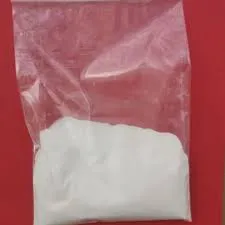The Importance of Boiler Feed Water Chemicals
Boilers are essential components in various industrial processes, providing steam that drives turbines, powers machines, and facilitates chemical reactions. However, the efficiency and longevity of boilers largely depend on the quality of the feed water used. To ensure optimal operation, a range of chemicals known as boiler feed water chemicals are employed. These chemicals play a crucial role in preventing issues such as scale formation, corrosion, and other detrimental effects that can compromise boiler performance.
Understanding Boiler Feed Water Chemistry
Boiler feed water chemistry refers to the treatment and conditioning of water before it enters the boiler system. The primary aim of using chemicals is to maintain the purity of the feed water and control its properties to prevent any disruptions during the heating process. The feed water is subjected to various treatments to remove impurities, including dissolved gases, minerals, and organic materials that can hinder boiler operation.
Scale Formation and Its Consequences
One of the most significant issues in boiler operations is scale formation, which occurs when hardness minerals like calcium and magnesium precipitate on heat transfer surfaces. Scale acts as an insulator, reducing heat transfer efficiency and leading to overheating and eventual failure of boiler components. To prevent scale formation, chemicals such as phosphate-based scale inhibitors and softeners are added to the feed water. These chemicals help to keep hardness minerals in solution and reduce the likelihood of scale deposit accumulation.
Corrosion Prevention
boiler feed water chemicals

Corrosion is another critical concern for boiler systems. The presence of oxygen, carbon dioxide, and other corrosive agents can lead to the deterioration of boiler tubes and components. To combat this, various corrosion inhibitors, such as polyamines and filming amines, are used. These chemicals create a protective layer on metal surfaces, preventing direct contact with corrosive substances and thereby extending the lifespan of boiler equipment.
pH Control and Alkalinity Adjustment
Maintaining appropriate pH levels and alkalinity in boiler water is essential for optimizing chemical treatments and preventing corrosion. Acidity can lead to increased corrosive activity, while high alkalinity can promote scale formation. Therefore, feed water treatment often involves the addition of pH adjustment chemicals such as caustic soda or sodium bicarbonate. These substances help to stabilize pH levels, ensuring a balanced chemical environment in the boiler system.
Deaeration Removal of Dissolved Gases
Dissolved gases, particularly oxygen and carbon dioxide, pose significant risks to boiler systems, as they enhance corrosion rates. Deaeration is a critical process where these gases are removed from the feed water using mechanical or chemical methods. Oxygen scavengers, such as sodium sulfite, are frequently employed to chemically bind dissolved oxygen, thus preventing its harmful effects on the boiler.
Conclusion
In conclusion, the effective management of boiler feed water chemistry is fundamental to maintaining the operational integrity and efficiency of boiler systems. The use of various boiler feed water chemicals not only prevents scale and corrosion but also ensures that the water quality remains within acceptable limits. By implementing proper feed water treatment protocols, industries can enhance boiler performance, reduce maintenance costs, and prolong equipment lifespan. As technology advances and our understanding of water chemistry deepens, the importance of these chemicals in boiler operations will continue to grow, helping to deliver efficient and reliable steam generation across diverse applications.

